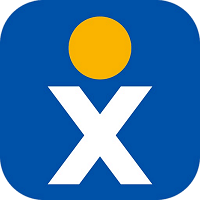Choosing the right VoIP for your small business is no small take. A voice-over-internet-protocol (VoIP) system is a software solution that enables businesses to make voice calls online. Compared to traditional landline systems, it’s more scalable and affordable, eliminating the high costs and disruptive downtimes when a business expands its communication operations. Different businesses benefit from VoIP systems, including telecommunications companies providing customer assistance and healthcare organizations offering telemedicine services.
The best VoIP for small businesses features tools for supporting different call volumes, integrates with a wide range of third-party solutions, and offers high uptime guarantees. In this article, we listed the top software solutions to help you decide which one is best for your communication needs:
- RingCentral: Best for scalability
- Nextiva: Best for toll-free calling
- Google Voice: Best for solopreneur communications
- Acefone: Best for call center operations
- Ooma: Best for brick-and-mortar communications
- Phone.com: Best for fluctuating call volumes
table, th, td {
border:1px solid black;
}
th, td {
padding: 5px;
}
| Best VoIP for Small Business | Key Features | |
| RingCentral |
| Try RingCentral |
| Nextiva |
| Try Nextiva |
| Google Voice |
| Try Google Voice |
| Acefone |
| Try Acefone |
| Ooma |
| Try Ooma |
| Phone.com |
| Try Phone.com |
RingCentral: Best for scalability
Pros
Cons

Our Rating: 4.37/5
RingCentral is a unified communications platform that allows users to make phone calls, chat with colleagues, send and receive text and fax messages, and facilitate video meetings. It supports local public switched telephone networks (PSTN) in 46 countries and offers international virtual numbers in 100 locations, enabling businesses to easily expand overseas.
Aside from the robust VoIP system, the company has a contact center platform powered by artificial intelligence (AI). It automatically records interaction summaries, notes, and follow-ups in a customer relationship management (CRM) tool, tracks keywords and phrases, like competitor names and product features, and generates call scoring.
For its robust small business VoIP phone system, RingCentral was recognized as a Leader in Gartner’s 2023 Magic Quadrant for Unified Communications as a Service (UCaaS) Worldwide report.
Nextiva: Best for toll-free calling
Pros
Cons

Our Rating: 4.36/5
Since 2006, Nextiva has offered various communications solutions packed with excellent sales and customer service tools. When subscribed to its small business phone system, VoIP features like unlimited domestic calling, conference calls, and enterprise integrations are accessible. The platform features call pop, a native CRM system, and customizable sales pipelines, which allow agents to streamline lead generation and nurturing processes.
Meanwhile, the provider’s contact center provides access to robust proactive outreach features, such as the auto-dialer and dynamic scripting. It supports various communication channels, including voice, SMS, chat, email, social, and web forms. In 2023, Nextiva was recognized as a Customers’ Choice in the Gartner Peer Insights “Voice of the Customer” report for UCaaS.
Google Voice: Best for solopreneur communications
Pros
Cons

Our Rating: 3.93/5
Google Voice is a VoIP phone service launched in 2009 after tech giant Google acquired the phone service GrandCentral. It allows users to forward calls to a phone number linked to the account. Those subscribed to the paid plan can secure phone numbers in over 10 countries and regions.
Aside from the U.S. and Canada, the platform is available in various international locations, including Belgium, Denmark, France, Italy, and the United Kingdom. In 2023, the small business phone system VoIP introduced spam warning functionality for texts, labeling suspicious texts as “suspected spam.”
Acefone: Best for call center operations
Pros
Cons

Our Rating: 3.9/5
Founded in 2019, U.K.-based company Acefone offers various cloud-based communication platforms, including VoIP systems and inbound and outbound contact centers. It provides 99.99% uptime, translating to only four minutes of monthly downtime. Its round-the-clock support helps businesses troubleshoot issues quickly, enabling uninterrupted customer service.
Aside from VoIP for small businesses, Acefone has a broad catalog of toll-free and vanity numbers. Through custom digits, companies can reflect brand identity in their contact information. Acefone earned Capterra’s “Best Ease of Use” badge in 2022 for its highly intuitive interface.
Ooma: Best for brick & mortar communications
Pros
Cons

Our Rating: 3.87/5
Phone service vendor Ooma provides home and office plans, catering to households, homepreneurs, and small and large companies. Ooma Residential features the analog telephone adapter Ooma Telo, which offers a VoIP phone service without a monthly charge, only a one-time fee for the device.
Meanwhile, Ooma Office caters to small teams regularly receiving customer service calls. Ooma Enterprise is for large organizations, providing access to a call center platform with intelligent routing capabilities and open APIs.
Phone.com: Best for fluctuating call volumes
Pros
Cons

Our Rating: 3.82/5
Phone.com, a communications software company founded in 2007, offers a business phone system with more than 50 standard VoIP features, including auto-attendant, hold music, call handling rules, and call logs. It features an artificial intelligence (AI)- powered intelligent answer bot that automatically connects callers to the right service representatives and screens spam calls. To help clients handle calls more efficiently, Phone.com offers live receptionist services.
Aside from call management, the provider supports other types of communications, such as video conferencing, accommodating a maximum of 100 participants. Attendees can use collaboration tools, like chat and whiteboards, while in the session. On top of that, Phone.com enables users to send and receive text and fax messages.
In this article…
Key components of VoIP systems
VoIP for small businesses facilitates efficient communications with customers and among team members thanks to its various capabilities. These are the features included in cloud-based phone systems:
- Unlimited calling: VoIP solutions offer unlimited domestic calling within the U.S. and Canada, with some extending the coverage to overseas territories, like Mexico. Others offer unlimited international calling, benefiting companies with clients abroad. When you compare VoIP and cellular services, the former offers more significant money savings since it doesn’t come with roaming charges that apply to the latter.
- Call management: These tools include call forwarding, call transfer, hold music, call waiting, and call queues, which enable teams to handle incoming calls in an orderly manner.
- Mobility: A softphone app compatible with iOS and Android systems helps users place and accept calls outside the office. Voicemail transcription makes referring to message details easier, especially when traveling. Virtual fax lets you send and receive fax messages wherever you are.
- Phone numbers: Most VoIP systems offer local phone numbers, while others offer toll-free and vanity numbers. Still, some provide local numbers in overseas locations.
- Analytics: A customizable analytics dashboard shows various performance metrics in real-time. Some VoIP solutions feature robust historical reporting tools, wherein you can generate custom reports based on the performance areas you want to track and evaluate.
Benefits of using VoIP systems
Businesses will find VoIP platforms valuable in streamlining communications. The advanced call management features — designed to direct customers to the right agents and create a pleasant call experience — contribute to customer loyalty in the long run. Aside from customer communications, VoIP systems improve team collaboration as they offer access to instant messaging and video conferencing.
Similarly, VoIP systems help lower communication costs. You won’t have to spend on installing and maintaining phone lines and hardware equipment, as in landline systems. The money savings are greater in the long run, especially when you add more users to the phone system since there’s no need to install extra physical phone lines. When you choose a hosted VoIP solution, you only pay a fixed monthly fee per user. The maintenance of the infrastructure is already included in your subscription.
Choosing the best VoIP system for your small business
VoIP platforms help small businesses boost customer satisfaction, facilitate team collaboration, and reduce communication costs. As you consider adopting cloud-based phone systems, consider your communication needs to find the best software solution fit for your requirements.
If your company plans to grow its operations soon, choose RingCentral as its robust third-party integrations support scalability. Go for Nextiva and maximize its generous toll-free minute allowance if you serve a national clientele. Google Voice is the ideal solution for solopreneurs since it offers a free plan and basic calling features.
Acefone is an excellent VoIP choice for companies running call center operations, as it’s packed with advanced call management tools. For brick-and-mortar communications, choose Ooma, the phone system that supports intercom calling and overhead paging. Finally, Phone.com should be your top option for fluctuating call volumes since you can choose between metered and unlimited calling plans.
Check out our VoIP software guide to browse other solutions if you have other communication requirements.
FAQs

About the author